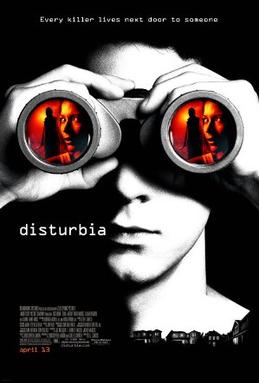United We Fear
| There’s a bit in Michael Moore’s Fahrenheit 9/11 in which psychiatrist and Washington Democratic Representative Jim McDermott says, “You can get people to do anything if they’re afraid.” This is a recurring theme in Moore’s work, cribbed to a large extent from Barry Glassner’s The Culture of Fear. A major thread of Bowling for Columbine, for example, as well as, I believe, Stupid White Men, is the way in which fear is used to manipulate. Moore notes, for example, how fear of the black man dominates the news. What’s interesting about this, for Moore, is how few times most people have actually been wronged by a black man (or by a person of another race at all, for that matter). Speaking from personal experience, that’s the case for me as well. About 99 percent of the bad things that have ever happened to me were caused by white people. Given, I grew up in East Tennessee, an area not particularly known for its racial diversity. Nonetheless, with the exception of a big kid who put a chain around my throat at the Boy's Club when I was about seven, I’ve mostly been screwed over by white people. White people were the ones who bullied me, made fun of me, treated me unfairly, lied to me, took advantage of me economically, and didn’t promote me vocationally when I deserved it. Maybe this is just me, but I don’t think so. Fear is very present in the brand of Christendom I’m familiar with, as well. In fact, fear seems to dominate this form of Christianity. It’s fear of children being corrupted that motivates James Dobson to “protect the family,” as if some wild band of homosexuals is going to sodomize his grandchildren and make him watch. It was a mixture of fear of Satanism, sexuality, teenage rebellion and even African Americans that was responsible for preachers in the 80s condemning rock and roll music (racist panic because, like the fear of aggressive Africanized honeybees, rock and roll is ultimately African, and you can’t be exposing your kids to those wild jungle rhythms). Fear is what motivates the more rural, working class members of my wife’s family, who are absolutely terrified of anyone not like them, be they rich, black, Latino, from the North, or on welfare. Fear is what motivates those who support George W. Bush’s war on terrorism, as if Bush could ever protect you from a determined suicide bomber. Fear, ironically, is also what brings many people to salvation. Christians often rely on two techniques for saving souls. One if the fear of hell and death. After all, you could die tonight in a car accident. And if you don’t know Jesus as your personal Lord and Savior, then you’ll spend all of eternity burning in torment, separated from God and all your friends. And eternity is forever. The second is the fear of being left behind. Despite the rapture being an idea roughly 150 years old, despite the reality that much of end times prophesy is strung together from out of context verses shoved wildly together into a perverse jigsaw puzzle that its advocates have already assembled in their minds, and despite the strong possibility that much of Revelation was a metaphor for Christian persecution under the Roman Empire (the values for Nero’s name add up to 666, for instance), apocalyptic fear is at an all time high. And there are many churches (and book publishers) willing to take advantage of that fear. Who wouldn’t want to not die? Who wouldn’t want to be whisked away from seven years of death and destruction? The question, then, is would many evangelical Christians even know how to evangelize if they weren’t allowed to scare people? Would evangelical Christians know how to, as St. Francis of Assisi said, preach the gospel at all times, and if necessary use words? Would they know how to persuade people, as Paul did, that Christianity is both reasonable and true? Would they, and do they, know how to love their neighbor as themselves? Or is it just so much easier to scare people shitless? |

















Comments on "United We Fear"
-
 jonathan even-zohar said ... (3/14/2005 12:18:00 PM) :
jonathan even-zohar said ... (3/14/2005 12:18:00 PM) :
-
 Anonymous said ... (3/15/2005 01:49:00 PM) :
Anonymous said ... (3/15/2005 01:49:00 PM) :
-
 Anonymous said ... (3/15/2005 05:49:00 PM) :
Anonymous said ... (3/15/2005 05:49:00 PM) :
-
 Wasp Jerky said ... (3/16/2005 07:33:00 AM) :
Wasp Jerky said ... (3/16/2005 07:33:00 AM) :
-
 Fargus... said ... (3/16/2005 09:14:00 AM) :
Fargus... said ... (3/16/2005 09:14:00 AM) :
post a commentI very much agree with you on the link between Christianity and Fear, but I think it goes a very long way back as well.
Reconsider Antiquity. The big cities of the Roman Empire are all situated in the Middle East. Antioch, Alexandria, Jerusalem and Athens. Sure Rome is the biggest city but realligning the view of Europe produces this "Woodfolk". Caesar's hunting grounds so to say. These Tribes existed in extreme conditions and tribes were, comparable to several north-amrican indians, coercion-concentrated. After most tribes slayed the Western-Roman Empire the only player in that part of the world that could grow in strength was the Catholic Church. They mostly talked and copied what former catholics had written, without much self-study. (Something that the arab muslims DID develop)
These badly dressed, smelly and deathlike woodfolk did became these christians, while killing all extremes in society (Jews, Witches) and even going oversees to slay even more!
All this senselesness is due to the early encounter the woodfolk had with religion, and the manipulation they suffered from the imperial entities.
Christianity in the end, has a buddhist-like Core, but people need to seperate it from millenia of thoughtless cultures.
I really enjoyed this post. I strongly agree with your stance and think that it is a major reason I stopped doing the "church" thing. I was tired of thinking God was pissed at me because I didn't do my quit time in the morning or because I kissed my girlfriend.
I once had a pastor tell me that hip/hop music was bad (all of it) because the culture it comes out of is violent and angry. So simulataneously he was trying to get me to fear hip/hop music and african american culture. I think is what happens when people stop paying attention to Jesus and start paying attention to Bush, LaHaye, and the like.
i started to leave a comment, but it got long. so i just decided to reply on my site. and after that it got a lot longer.
procrastination is like that, it seems...
Thanks for the clip, JVPastor. Reminds me of the street preachers who used to come to the University of Tennessee and call the female students whores. You know, in the spirit of love. Have you ever seen the documentary film Hell House? It's a fascinating and very balanced look at one of those judgement houses that pop up every year around Halloween time.
Thanks Adam. My wife and I once got in trouble for "playing kissyface" at a Christian bookstore. Adam, I have a feeling you'd really like a book called Exit Interviews, by a guy named William D. Hendricks. It's a book of interviews with people who have stopped going to church for one reason or another. Very revealing. The trouble with a lot of church authority figures is that they spend too much time talking and not enough time listening. More people might be willing to stick around these things if they felt someone actually cared about their questions and frustrations.
I think the interesting thing to think about here is that many Christians feel that without religion, there would be no incentive to not do bad things. And not just minor sins like masturbating or being gay, but the big ones, like theft and murder.
I find it curious that these purveyors of morality seem to be peddling the idea that it's only fear of consequences which stop EVEN THEM from doing things. Shouldn't it be the desire to do good, rather than fear of the consequences of doing bad, that motivates good deeds?